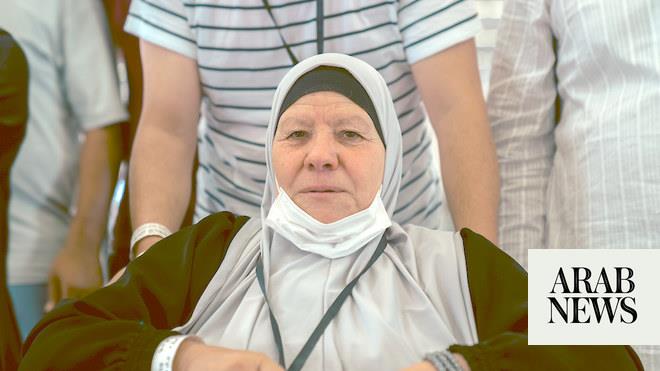
There are organizations whose ultimate objective is to not be needed and to cease to exist. None more so than UNRWA — the UN Relief and Works Agency for Palestine Refugees in the Near East — which was assigned nearly 70 years ago to carry out the most difficult task of providing humanitarian and human development services to the dispersed communities of Palestinian refugees. Since its establishment in 1949, it has attracted criticism from almost everyone. Israel blames it for taking the Palestinian side in the conflict, and for perpetuating the refugee issue; the Palestinians say it is not doing enough for them, is inefficient and merely perpetuating the occupation; and from donor countries comes a mixture of such allegations. What these critics fail to acknowledge, mostly for their own political convenience, is that they are using UNRWA as a punchbag to cover up their own failures.
It would be inaccurate to suggest that the organization is by any stretch of the imagination without fault. Its leaders know this more than anyone else, as they live it daily. However, those who rush to castigate UNRWA and its employers, and even go so far as calling to dismantle it altogether, need to ask themselves some vital questions; and even more importantly come up with some honest and convincing answers.
Have they done all in their power to bring the Israeli-Palestinian conflict to an end, so that the refugee issue, including the question of their statelessness, can be resolved justly and fairly, and with complete closure? In the absence of a peace agreement, have they done enough to help these victims of war and their descendants to have a decent life and decent prospects, and to protect their wellbeing and rights? And, if UNRWA were to cease to exist today, without a peace agreement, are they somehow going to continue to look after the safety and welfare of Palestinians who have been living in refugee camps since the middle of the last century?
Honest answers to any of those questions should cause those who are critical of UNRWA to blush profusely and admit that no, they have not done enough to bring the refugee issues to an end through a peace agreement, nor are they ready to take on the daily mantle of ensuring their wellbeing.
Earlier this month, the American magazine Foreign Policy obtained internal emails written by President Donald Trump’s special envoy for the peace process Jared Kushner that clearly show he has been operating behind the scenes to bring about the dismantling of UNRWA. One of these emails states: “This (agency) perpetuates a status quo, is corrupt, inefficient and doesn’t help peace.” The email was addressed to several senior officials, including Trump’s other special Middle East peace envoy, Jason Greenblatt. This probably explains the irresponsible decision by the American administration to slash $300 million of funding for the agency, which has left it with a shortfall of about a quarter of its annual budget.
Kushner’s complaint echoes and recycles a much-used, though not very convincing, Israeli argument: That UNRWA serves those who wish to maintain the refugee issue artificially, and to keep alive the Palestinians’ hopes of returning to their homes, from which they were expelled or fled in 1948. Disingenuously, that argument proposes that only the original Palestinian refugees of 70 years ago should enjoy refugee status, and not their descendants. This is a very cynical attempt to resolve the issue by literally letting it die, as only an estimated 30,000 to 50,000 of 1948’s 750,000 refugees are still alive. Yet, of their 5 million descendants, who are also recognized as refugees, one-third still live in camps across Jordan, Lebanon, Syria, the West Bank and Gaza, and many others are still stateless even if they don’t live in refugee camps.
UNRWA’s education system has produced some of the brightest graduates in the region.
Yossi Mekelberg
What perpetuates this situation is not UNRWA, but the lack of progress in reaching a peace agreement between Israel and the Palestinians. It has been more than a year-and-a-half since Washington pledged to introduce a peace plan, but the wait may go on for a while longer. Moreover, the vast majority of these refugees understand and reluctantly accept that no peace agreement would include their return into Israel’s pre-1967 borders in large numbers.
The situation of UNRWA’s beneficiaries is an obvious anomaly. However, there is an immoral insinuation to remove from them their refugee status, especially if their legal status is not resolved. It implies that only the first generation of refugees is entitled to the right of return (even if it won’t be able to exercise it). It is not only an immoral approach; it is also a self-defeating one. It is an unacceptable incentive for those who are forcing people into exile, or for the beneficiaries of such a situation, to keep it unresolved, leaving the original refugees’ descendants in limbo and at the mercy of their host countries.
There is a deliberate attempt underway by Israel and its allies in Washington to divert attention from the real issues. Yes, not all those registered with UNRWA are stateless and, yes, some of its employees have not lived up to the impartiality expected of UN workers. And, yes, there are serious challenges when the vast majority of those who work for the organization are Palestinians themselves, especially in times of war.
However, under the most difficult circumstances, including wars and blockades of Gaza, oppressive occupation in the West Bank, ongoing carnage in Syria, and decades of conflict and discrimination in Lebanon, UNRWA’s education system has produced some of the brightest graduates in the region; its health service provides medical care for more than 3 million people; hundreds of thousands of refugees are empowered by the agency’s micro-finance schemes; and millions would have been left without a roof over their head were it not for the agency’s existence.
It is time for those who unconstructively slate UNRWA and its dedicated workers to cut the organization some slack and instead concentrate on bringing about a just and fair solution to the Israeli-Palestinian conflict. In doing so, they might find the agency’s vast knowledge and experience of one of the most complex issues of this intractable conflict most useful.
• Yossi Mekelberg is professor of international relations at Regent’s University London, where he is head of the International Relations and Social Sciences Program. He is also an associate fellow of the MENA Program at Chatham House. He is a regular contributor to the international written and electronic media. Twitter: @YMekelberg
Disclaimer: Views expressed by writers in this section are their own and do not necessarily reflect Arab News" point-of-view












